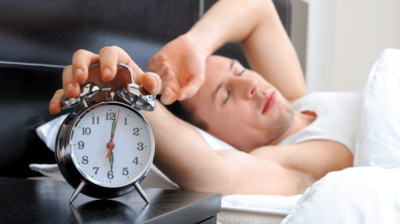What is sleep deprivation?
Sleep deprivation is becoming more of an issue in Ireland

Sleep deprivation is a condition where the body is not getting the required amount of sleep needed to feel rested the next day. It can be classified as either chronic or acute, chronic being the more severe out of the two and possibly leading to serious health conditions. It has been reported that 6 out of 10 people who live in Ireland are not getting the required amount of sleep needed every night.
Symptoms of sleep deprivation
- Excessive daytime sleepiness
- Fatigue
- Decreased alertness
- Decreased performance
- Memory and cognitive impairment
- Weight gain
- Inability to fully concentrate on tasks
- Changes in mood
- Possible injury – due to decreased alertness and performance
- Chronic sleep deprivation can lead to major issues such as: health problems (obesity, high blood pressure), impairment of mood, depression, and increased mortality rates.
Causes
The overall cause of sleep deprivation is lack of getting the recommended number of hours of sleep per night. However, lack of recommended hours of sleep can be due to several factors, such as:
- Sleep disorders – such as, insomnia, sleep apnea, narcolepsy, sleep walking and so on.
- Personal choice – choosing to stay up later than you should (i.e. staying up and watching tv).
- Work schedule – irregular work shift hours can lead to not getting enough sleep or shifting your regular sleep schedule.
- Poor sleep hygiene – for example drinking caffeine before bed will cause you to be more alert, and worrying and stressing over things before bed will also cause you to not be in a relaxed state of mind therefore making it harder to fall asleep.
- Your sleeping environment – if where you sleep is too noisy, bright, hot, or cold it might be causing you to not be able to go to sleep right away.
- Medication – some medication has a symptom of insomnia (i.e., some ADHD medication).
- Contracted illness – illnesses such as the cold can cause disruptive sleep due to constant coughing, sneezing, blowing nose, and so on.
How to fix the issue
- Try to aim for 7 to 8 hours of sleep every night, since that is the average amount of sleep required in order to get a good night’s rest.
- Go in and talk to your GP about your sleep deprivation – it could be something more than not getting enough sleep, such as a sleep disorder causing you to be sleep deprived.
- Practice good sleep hygiene – things like avoiding caffeine before bed, having a general time when you get up and go to bed, staying clear of eating heavy foods before bed, establishing a relaxing bedtime routine, and more are all helpful for having good sleep hygiene.






